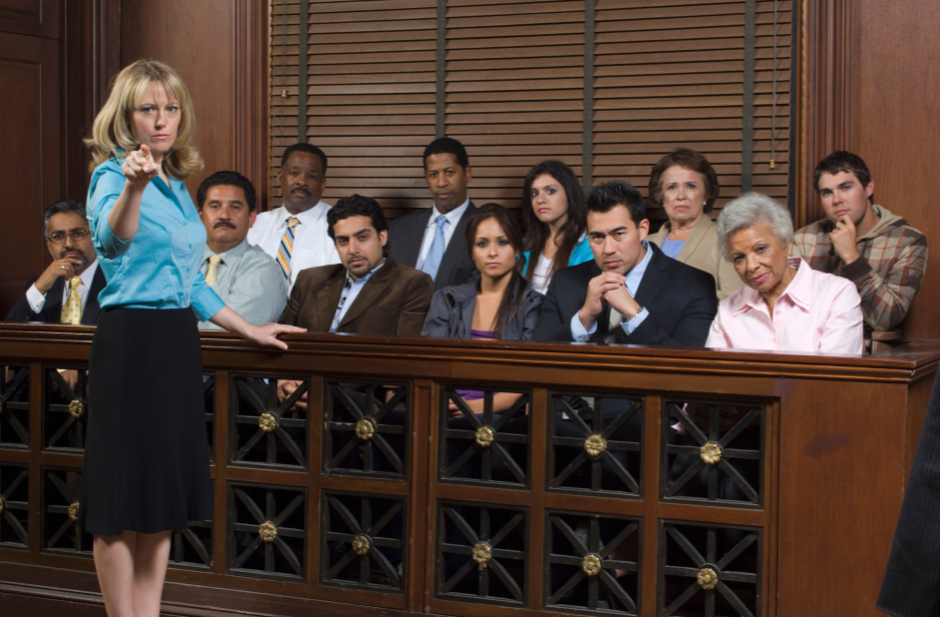When I was a child, growing up in a large Catholic family we would meet up after dinner for family prayer time. We would say the Lord’s prayer and then take it in turns to pray out loud, if we wanted to. This was our perfect time to ‘snitch’ on each other. Our prayers were so immature:
“Dear God, please forgive my brother for punching me in the arm for no reason at all.”
“Dear God, please forgive my sister for not sharing her Lego bricks with me. She totally deserved that punch, don’t you think?”
What were my parents thinking? We should have just stuck with traditional prayers or the rosary, right? Our prayer time was a matter of consternation in the family. But it was funny as well. At least we look back and laugh on it now. But at the time, we were all in the habit of snitching on each other, and I confess I was a terrible snitcher. As a highly sensitive child, I was easily offended and my older brothers perpetually teased me. Naturally, I have forgiven them. And I hope they have forgiven me for snitching on them. But what was the purpose of snitching?

The Bad Purpose of Snitching
Let’s admit it, we snitch on other people’s behaviour to draw people’s attention from our own poor behaviour. Or worse, to find pleasure in another person’s misery at being told off. This is a common trait in childhood. I remember how my brother would silently laugh at me behind our father whilst I was being told off. He generally found glee as I was being repremanded. It would wind me up no end.
I see similar behaviour working in schools as a supply teacher. Children are perpetually snitching on each other to try and drive my attention away from their own atrocious behaviour, or to get someone else into trouble. I have no time for their juvenile behaviour. So I remind them of Jesus’ wise words, “Before you check the speck in your friend’s eye, take out the log in your own eye.”
As a teacher, adult and Christian, I feel duty bound to teach children about the consequences of snitching. In a secular setting, I warn them that no one likes a snitch and it is hard to establish friendships with people who don’t trust you. I explain to children they should only tell on their peers if their peers are doing something unsafe that could harm themselves or others. Otherwise, they need to find a way to solve their own disagreements and if they cannot do that they can both come to an adult to ask for wisdom and direction.

Satan: The Master Snitcher
Let’s be honest the chief of snitchers is Satan himself. In the bible he is called ‘The accuser’. He is the first to snitch to God on your behaviour. He is a stickler for legislation and will use it against you. He will merrily remind you of all your sins, so you despair. He will tell God all your sins as well if he can.
“Then he showed me Joshua the high priest standing before the angel of the Lord, and Satan standing at his right hand to accuse him.” (Zechariah 3:1)
But God is having none of his accusations!
“The Lord said to Satan, “The Lord rebuke you, Satan! Indeed, the Lord who has chosen Jerusalem rebuke you! Is this not a brand plucked from the fire?” (Zechariah 3:2)
So if God is not interested in the accusations of Satan, will he be interested in the accusations you make against your peers?
I wish I could say that snitching is just something that children are guilty of due to their immaturity, but saldy it is evident in the adult world as well. It is evident in families where couples accuse each other, like Adam and Eve in the garden of Eden. It is rife in the workplace where people perpetually point their fingers at their colleagues to shirk responsibility. Dare I say it is prevelant in the Church?
Snitching is the tool of the devil, the accuser. He, who wants us to fail and to despair. He wants us to doubt God’s mercy for us. He doesn’t want us to turn to God, but he does want us to turn on each other. But, do we want this for others? Do we want our friends, colleagues, and family members to fear and despise us because we keep snitching on their behaviour to others?

The Solution
There are times when we do need to disclose the misdeeds of another person for the protection of that person or others. But there is a right way and wrong way to go about it and this is what Jesus teaches us.
But I say this to you, anyone who is angry with a brother will answer for it before the court; anyone who calls a brother “Fool” will answer for it before the Sanhedrin; and anyone who calls him “Traitor” will answer for it in hell fire.
So then, if you are bringing your offering to the altar and there remember that your brother has something against you, leave your offering there before the altar, go and be reconciled with your brother first, and then come back and present your offering. Come to terms with your opponent in good times while you are still on the way to the court with him, or he may hand you over to the judge and the judge to the officer, and you will be thrown into prison.
In truth I tell you, you will not get out till you have paid the last penny.” (Matt 5:22-26)
So instead of making big public accusations that will be fought in the public space, such as in front of your children or in the office before your manager, or worse the HR manager, go directly to the person whose behaviour you don’t approve of and tell them face to face. They may be unaware that their behaviour has offended you. They may not know they are making mistakes. Talk with them directly, with tact and discretion. If you really want to tell another person of the behaviour of someone else, you can always share your qualms with a priest in the confessional. He can guide you on how to approach the matter with grace.
The Solution in the Church Community
Jesus also teaches us how to deal with a sinner within the Church community. He says,
“If your brother sins against you, go and tell him his fault, between you and him alone. If he listens to you, you have gained your brother. But if he does not listen, take one or two others along with you, that every charge may be established by the evidence of two or three witnesses. If he refuses to listen to them, tell it to the church. And if he refuses to listen even to the church, let him be to you as a Gentile and a tax collector.” (Matt 18:15-16)
Here, we can see that Jesus gives permission for us to share the misdeeds of others when they refuse to repent and their behaviour is causing offence to members of the community. There is an order on how to approach the situation. Jesus doesn’t say it is acceptable to run off to the religious leaders straightaway every time someone sins against you. He advises us to raise our concerns directly with the one who offends us to give them the opportunity to repent and be reconciled. However, he is clear that if the member refuses to listen to the church leaders he must be treated as a ‘Gentile and tax collector’, i.e. rejected from the community. We call this ex-communication in the Catholic Church, when a person is excluded from the sacraments of the Church. This is for the benefit of the person and of the Church as a whole. The person may regret their behaviour if they are excluded from the church community and so repent of their misdeeds. The Church is protected from a damaging influence in the body of Christ. But it is for the church leaders to make this judgement under canon law, not for us mere members of the laity to point fingers and threaten legal action at each other like the church in Corinth whom St Paul reprimands.
When one of you has a grievance against another, does he dare go to law before the unrighteous instead of the saints? Or do you not know that the saints will judge the world? And if the world is to be judged by you, are you incompetent to try trivial cases? Do you not know that we are to judge angels? How much more, then, matters pertaining to this life! So if you have such cases, why do you lay them before those who have no standing in the church? I say this to your shame. Can it be that there is no one among you wise enough to settle a dispute between the brothers, (1 Corinthians 6:1-20)
And so if you truly care for someone, as we are all called to do so, in most cases you can resolve issues directly with them or with trusted members of the church community without ratting them to the authorities. And this will please God.

What if someone is committing a crime?
Some sins are also criminal acts. And some ‘criminal acts’ are not sins. In fact, in some totalitarian states to follow the law could be committing a sin. Such as in Nazi Germany, whereby citizens were expected to disclose the hidden whereabouts of dissenters and Jews. That would be a sin, as it would cause harm to another. But if you live in a free country and the laws are to protect the people, if you know someone who has repeatedly broken the law or committed a serious crime it may be right to report them to the authorities. It depends on the nature of the crime.
The early church struggled with this issue. How much should they be obedient to the ruling nation, Rome? The Pharisees questioned Jesus on this issue regarding paying taxes to a foreign pagan power and Jesus wisely told them to give to Caesar what belongs to Caesar and to give to God what belongs to God.” (Mark 12:17).
St Peter advises Christians to honour the emperor as an example of good living.
“Always behave honourably among gentiles so that they can see for themselves what moral lives you lead, and when the day of reckoning comes, give thanks to God for the things which now make them denounce you as criminals.
For the sake of the Lord, accept the authority of every human institution: the emperor, as the supreme authority, and the governors as commissioned by him to punish criminals and praise those who do good.” (1 Peter 2: 12-14)
Many Christians wonder what St Peter meant with these words, when the emperor was openly persecuting the Christians. But St Peter remarked that Christians must give due regards to authorities that punish justly. For not all punishments administered to criminals in the first century was unjust, as the thief next to Jesus on the cross acknowledged.
In modern times, we need to use our God given wisdom to know whether to report a person to the police if they are harming others, which could be a sin as much as a crime. However, there may be times when someone is expressing their free speech online and you disagree with what they say. Subjectively, their words may be so strong some may think they are inciting violence, when they are not. This is when you need to return to the first principle of this post. If you report someone for expressing their free-speech are you snitching on them? Your own conscience should prompt you in this matter.
Always ask yourself the question, what could be the consequences of my actions here and what is my motivation? Is it to protect others or is it to get someone else into trouble for my pleasure? If it’s the former, God is happy with you. If it’s the latter, you may need to take the issue to confession.





